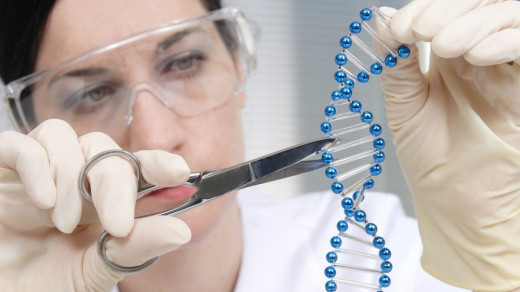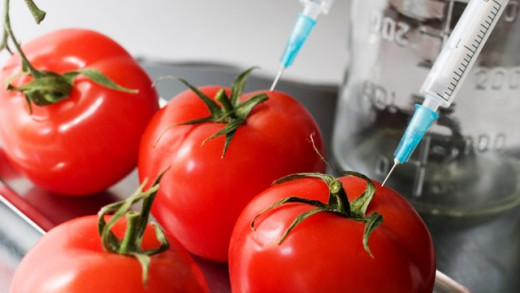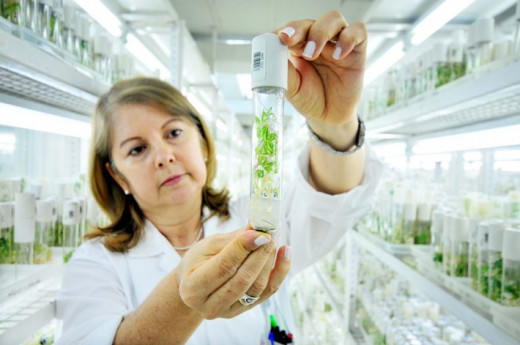The Adverse Effects of Genetic Engineering

Genetic engineering is a set of technologies that enable scientists to manipulate the genes of plants, animals and microorganisms artificially. It is applied in a wide range of fields including research, agriculture and medicine. Today, some scientists claim that genetic engineering is safe and should be applied to agricultural products, but others have a negative attitude. As far as I am concerned, I hold the idea that creating new plant species by manipulating their genes with the help of genetic engineering has the potential to have some adverse effects on human health, farming and environment.
The Effects of Genetic Engineering on Humans
- Will Genetic Engineering Change Humanity?
Due to the recent progress in genetic engineering, many scientists believe that in the future, parents will be able to design their children. This may bring up some social and moral questions.
To begin with, genetically altered crops, which are also known as transgenic crops, have some potential harm to human health since they can cause weakness in the immune system. This could result in less resistance to certain diseases like cancer. To be more precise, while genetic engineering attempts to change the genes of some plants to make them stronger and more resistant to pests, the altered genes could have a negative effect on the health of humans who consume those crops. Some of these effects are allergic reactions and toxicity. For instance, in May 2002 briefing Greenpeace notes that "Yeast which had been genetically engineered to improve alcohol fermentation unexpectedly had up to 30 times the concentration of methylglyoxal (a highly toxic compound) compared to the control non-GE strain." The toxins which are caused by the transgenic plants are linked to cancer and disorders in immune systems. Hageborn (2000) points out the adverse effects of transgenic crops on human health when he claimed that “Transgenic crops could bring new allergens into foods that sensitive individuals would not know to avoid. An example is transferring the gene for one of the many allergenic proteins found in milk into vegetables like carrots. Mothers who know to avoid giving their sensitive children milk would not know to avoid giving them transgenic carrots containing milk proteins. The problem is unique to genetic engineering because it alone can transfer proteins across species boundaries into completely unrelated organisms.” This type of food consists of some allergens that have never been consumed as food. For example, after consuming transgenic soybeans which have been converted from Brazilian nuts, many people in the United States and Europe has been reportedly developed allergies to food like peanuts which threatens their lives.

Another reason why the disadvantages of genetic engineering outweigh its advantages is that this method of altering the genes of agricultural products could affect other plants negatively. That is to say, while strengthening a crop’s genes and adding it new traits would be beneficial that particular species, this could result in not only the disruption of the biodiversity but also the extinction of other plant species in that area. Genetic modification also reduces bio-diversity of the world’s food supply through the use of ‘terminator’ seed technology which produces sterile seeds and controls seed supply especially in developing countries (Koch, 1998). Genetically altered plants have the potential to be disseminated in the area by some natural forces like wind and rain. If a transgenic plant dominates the area, it disrupts the ecology of the land and affects the biodiversity in a negative way. Therefore, certain species of plants could not reproduce and may become extinct, which will be too bad for the farmers. While trying to make some types of crops heartier, they may lose the possibility of cultivating other types of crops. It is also likely to decrease the quality of the agricultural products. Uzogara (2000) mentions this risk by stating that “Foreign genes might alter nutritional value of foods in unpredictable ways by decreasing levels of some nutrients while increasing levels of others. This will cause a difference between the traditional strain and the GM-counterpart.” Given the number of disadvantages of transgenic crops; while applying this technology to have better products, farmers should think carefully about the negative effects of the genetic engineering on the quality and productivity of their crops.

Last but not least, although some scientists believe that genetic engineering will result in safer crops by making them more fertile and resistant to some pests and microorganisms, the new traits added to the genes of transgenic plants may be transferred to other plants and animals, thus may make them less resistant to some viruses and diseases by affecting their genes. Uzogara (2000) claims that “Plants engineered to express potentially toxic substances such as drugs and pesticides will present risks to other organisms that are not intended as targets.” For instance, if animals feed on genetically modified plants, the new traits which enable the crops to resist to certain species of pests have the potential to harm them. The altered DNA may transfer to the animals’ genes and have unforeseen effects on their immune system and health. This type of change in the traits of animals may result in even worse problems like preventing them from reproducing and eventually making them extinct. Moreover, if we think about the short term consequences of genetic engineering, we might see that some strains of pests and microorganisms in an area are exterminated so that the crops could be safe. However, considering the long term consequences of this technology, we will come to the conclusion that this type of human involvement in the environment will be too bad for the ecology by causing a permanent change in that area because every insect and microorganism has a vital impact on both the food pyramid and the degradation of dead organisms.
All in all, it is certain that genetic engineering applied to crops has the risk of negatively affecting the human health by weakening the immune system of humans and making them more vulnerable to certain diseases. This way of changing the traits of crops can have adverse effects on other crops and the whole ecology in a particular area. Taking into account of all these factors, we may reach the conclusion that applying genetic engineering to genetically manipulate the traits of plants has more potential disadvantages than the advantages it provides.
References
Greenpeace. (2012). Genetic Engineering Could Be A Threat To Human And Environmental Health. Retrieved May 13, 2015, from http://www.greenpeace.org/international/en/campaigns/agriculture/problem/genetic-engineering/
Hageborn, C. (2000). Risks of Genetic Engineering. Retrieved May 13, 2015, from http://www.sites.ext.vt.edu/newsletter-archive/cses/2000-02/risks.html
Koch, K. (1998). Food Safety Battle: Organic vs. Biotech. Congressional Quarterly Researcher
Uzogara, S. G. (2000). The impact of genetic modification of human foods in the 21st century: A review. Cambridge
© 2015 Seckin Esen









